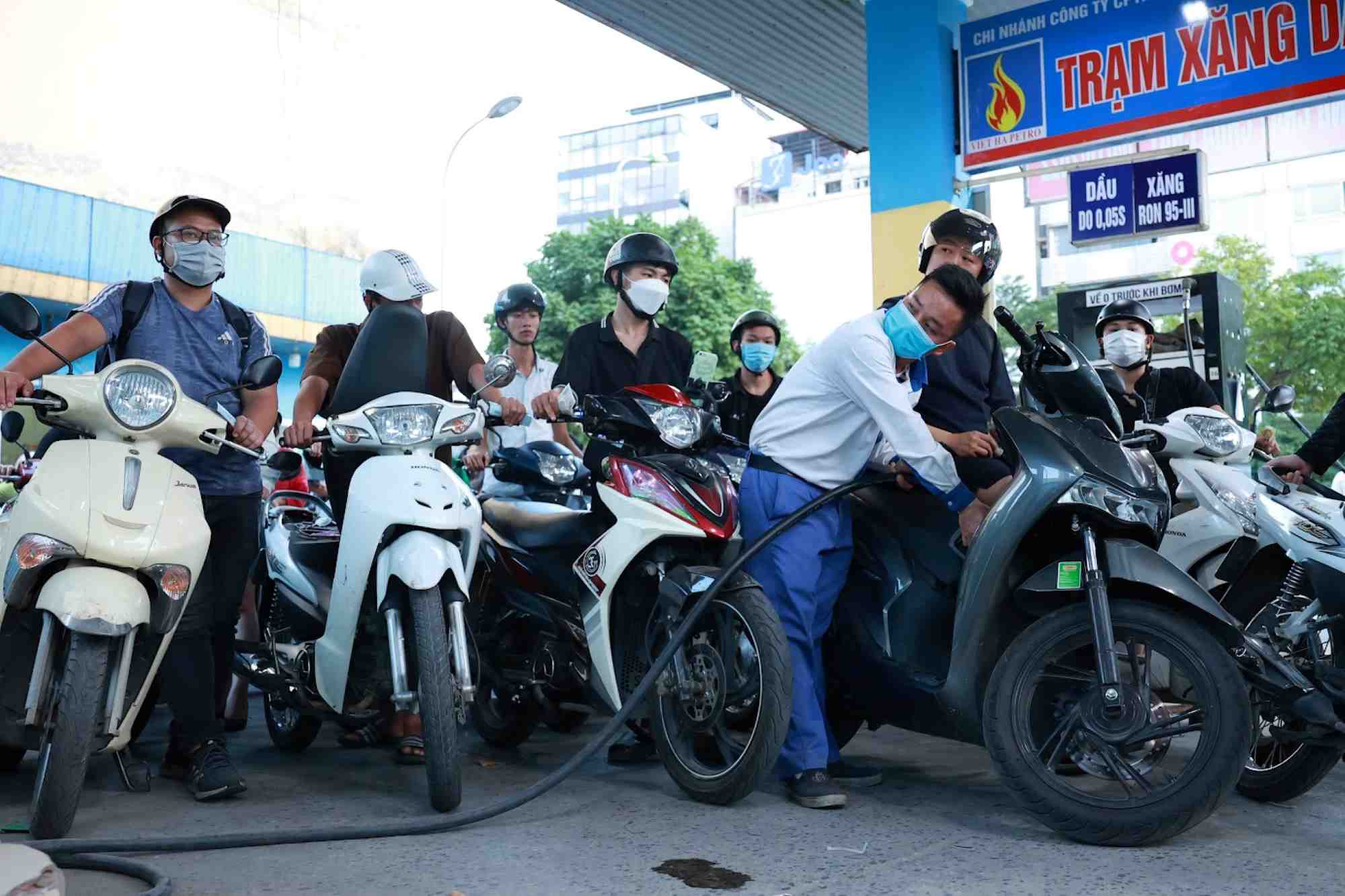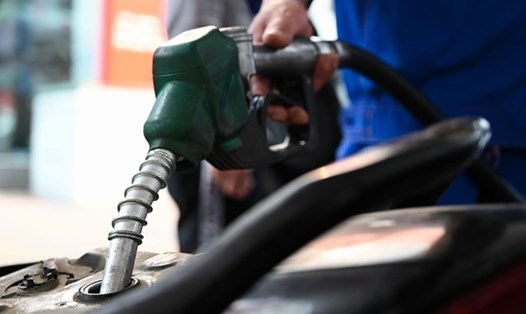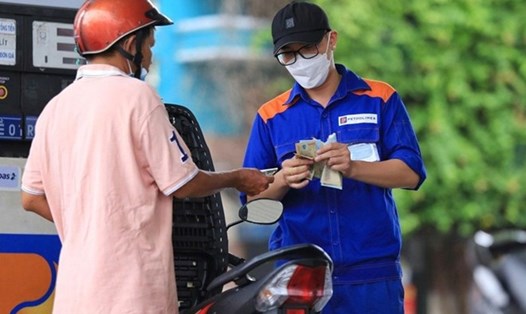Petroleum distribution and retail businesses suffer heavy losses
The petroleum business is considered a super profitable industry, a "golden goose" that attracts many investors. At one point, the number of petroleum stores nationwide reached more than 18,000; 500 distributors and 38 petroleum trading enterprises.
However, the information that has "startled" many people is that since the beginning of the year, nearly 20 petroleum distributors have voluntarily returned their licenses. This wave is predicted to not stop.
Speaking to Lao Dong, Mr. Nguyen Xuan Thang - Director of Hai Au Phat Petroleum Company Limited had to exclaim: "The petroleum business has never been as difficult as it is now." Mr. Thang said that when world oil prices increase, the discount is "squeezed" by key enterprises and reduced sharply. But when world prices stagnate or decrease, the discount increases.
Mr. Van Tan Phung - Chairman of the Board of Directors of Dong Nai Petroleum Trading Joint Stock Company, a petroleum distribution enterprise, also lamented: "Never before has the petroleum business situation been so gloomy and difficult. Consumption has decreased while world prices have continuously dropped."
According to this person, recently, the discount on gasoline has always been low, fluctuating between 700-1,000 VND/liter, while gasoline is only over 500 VND/liter, causing many difficulties for distribution and retail businesses. With such a discount, Mr. Phung admitted that businesses cannot make a profit, even suffer heavy losses.

Oil and gas businesses want fair competition
A representative of the petroleum distribution business community told Lao Dong that the Ministry of Industry and Trade is developing a Decree on petroleum trading (replacing all three previous decrees), but the new draft decree still restricts the business rights of petroleum enterprises.
According to him, currently, while a part of the gasoline supply is produced domestically, there are still regulations that only wholesale traders are allowed to buy from domestic manufacturers, while distributors are not allowed.
The draft decree also stipulates that primary traders are allowed to buy and sell with each other, including buying from other primary traders, while distribution traders are only allowed to buy from a single source, the primary trader, and are not allowed to buy and sell with each other.
"Restricting the freedom of business of enterprises will not ensure market competitiveness," said the business leader.
According to the representative of the petroleum distribution and retail business community, with the way of regulating business rights as in the draft decree, the main traders will become the market leaders, making small and medium enterprises in the supply chain (distributors and retailers) fall into a dependent position or work for the main enterprises, except for enterprises that are subsidiaries of the main traders.That is inequality in the petroleum business.
In addition, for many years, there has been a super large enterprise in the market that accounts for 51% of the market share, has all the business rights of a wholesale trader, especially has a distribution system from import, wholesale and retail to consumers. There are also 6 large enterprises that are also wholesale traders, accounting for 88% of the market share from import to wholesale and retail. This shows that we do not have a true petroleum market with a free, equal and fair competition mechanism.
"To avoid monopoly in the petroleum business sector, state management agencies need to require monopoly enterprises to split up to clearly distinguish between import, distribution and retail," said a representative of the business community.
Regarding the solution, Mr. Nguyen Xuan Thang - Director of Hai Au Phat Petroleum Company Limited said that the Ministry of Industry and Trade needs to consider amending the draft decree with the spirit of innovation in the method and mechanism of managing and operating the petroleum market, towards building a petroleum market operating with the principles of free, equal and fair competition.
In particular, there needs to be solutions to reduce the monopoly or market dominance of large and super-large enterprises, helping small and medium-sized enterprises in distribution and retail not to be acquired in accordance with the spirit and objectives of the Law on Support for Small and Medium Enterprises.
Reasons for "squeezing" gasoline discounts
"Many key enterprises said that they are also having a "headache" because the minimum total petroleum source level assigned by the Ministry of Industry and Trade at the beginning of the year is difficult to achieve. Due to the continuous decrease in world oil prices over the past few months, key enterprises are losing money every time they import goods. Moreover, the price adjustment cycle is only 7 days, so when enterprises import goods, the inventory is large, up to tens of billions of VND.
Therefore, we are forced to reduce discounts for agents and distributors, the business leader said, adding that he requested an adjustment to the minimum total source due to the unreasonable allocation and distribution of output by the Ministry of Industry and Trade.
"Enough gasoline supply for 2024"
Regarding the adjustment to reduce imports, Mr. Phan Van Chinh - Director of the Domestic Market Department (Ministry of Industry and Trade) - said that the Ministry will carefully consider the issue of requesting to adjust the total allocated resources of enterprises. However, in any context, the highest goal must still be achieved, which is to ensure sufficient supply of gasoline for domestic use.
Regarding the supply of gasoline and oil in the last 4 months of the year, the leader of the Domestic Market Department informed: It is expected that the two factories will produce about 6.6 million m3/ton of various types of gasoline and oil; import about 3.6 million m3/ton. The total production and import source is about 10.2 million m3/ton of various types of gasoline and oil. Meanwhile, the estimated consumption in the last 4 months of the year is about more than 8 million m3/ton (average about more than 2 million m3/ton/month). Inventory is from 1.8-2 million tons.
"If there are no unexpected factors, the supply of gasoline and oil in 2024 will meet the demand for production, business and consumption of the people," said Mr. Chinh.









